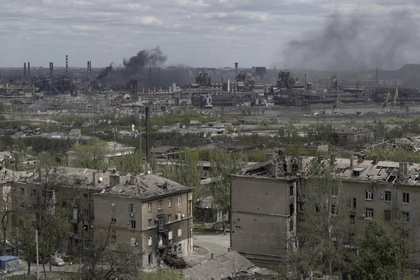The reform of the State Customs Service of Ukraine is desirable for business, which wants to see a reformed institution and personnel working not for corrupt schemes, but for the benefit of the state, for civil society representatives to ensure the proper level of transparency, accountability and independence in the work of customs, and for customs officers themselves to improve their professional level.
International partners view the reform of the State Customs Service of Ukraine as one of the key elements of the European integration process.
JOIN US ON TELEGRAM
Follow our coverage of the war on the @Kyivpost_official.
Why does Ukraine need State Customs Service Reform?
The State Customs Service of Ukraine has long been plagued by structural and staffing problems that led to low efficiency.
The main prerequisites for the reform are as follows:
- Corruption. Ukraine’s National Agency of Corruption Prevention (NAZK) found Ukrainians consider customs one of the most corrupt government agencies in Ukraine due to extortion and fraudulent import-export operations, avoidance of responsibility for violations of customs rules, and resolution of ‘problematic’ issues of customs value or classification of goods
- Frequent changes and rotation of customs management. Stagnation in customs management caused by numerous dismissals, transfers and frequent use of acting officials has led to the absence of a single sustainable and focused management policy for the agency,
- Ineffective personnel policy on the ground. Lack of proper motivation of employees and abuse of power led to a decrease in the efficiency of the body's work.
What will the 6490-d bill change after the president signs it?
Staff reboot
The key idea of the draft law is a personnel reset of the State Customs Service of Ukraine, which aims to:
- Eliminate those officials who do not meet the requirements of their positions;
- Ensure new employees who will be recruited are professionals and not involved in corruption scandals.
Anti-corruption measures

Russiaʼs War Caused $170B in Infrastructure Damage to Ukraine
- All customs officers will be thoroughly checked for compliance to anti-corruption standards;
- A system of independent monitoring and control of the customs service will be established.
The draft law 6490-d covers only one structural part of the reform – work with personnel.
Despite the ambitious nature of the draft law 6490-d, the implementation of the reform may face a number of challenges:
- Resistance from the system. The personnel reset may be opposed by some officials who have interests in maintaining the status quo.
- Formal approval instead of a real change. An important aspect will be to ensure that changes are actually implemented, not just formally approved.
- Ineffective funding management. The modernisation of the customs service will require additional financial resources, and the success of the reform will depend on how effectively these resources are used.
What to expect from the customs reform?
- Reduced corruption. Due to the reshuffle of personnel and strengthening of anti-corruption measures, corruption in the customs service is expected to decrease.
- Increased efficiency. Modernisation of processes and introduction of up-to-date technologies will make customs operations and procedures faster and more efficient.
- Transparency and accountability. Open databases, transparent procedures for certification, appointment and dismissal will help make the customs service more accountable to the public.
- Integration into the EU. Adhering to European customs standards will allow Ukraine to better adapt to the requirements of the European Economic Area and facilitate the development of foreign trade.
The views expressed in this opinion article are the author’s and not necessarily those of Kyiv Post.
You can also highlight the text and press Ctrl + Enter














